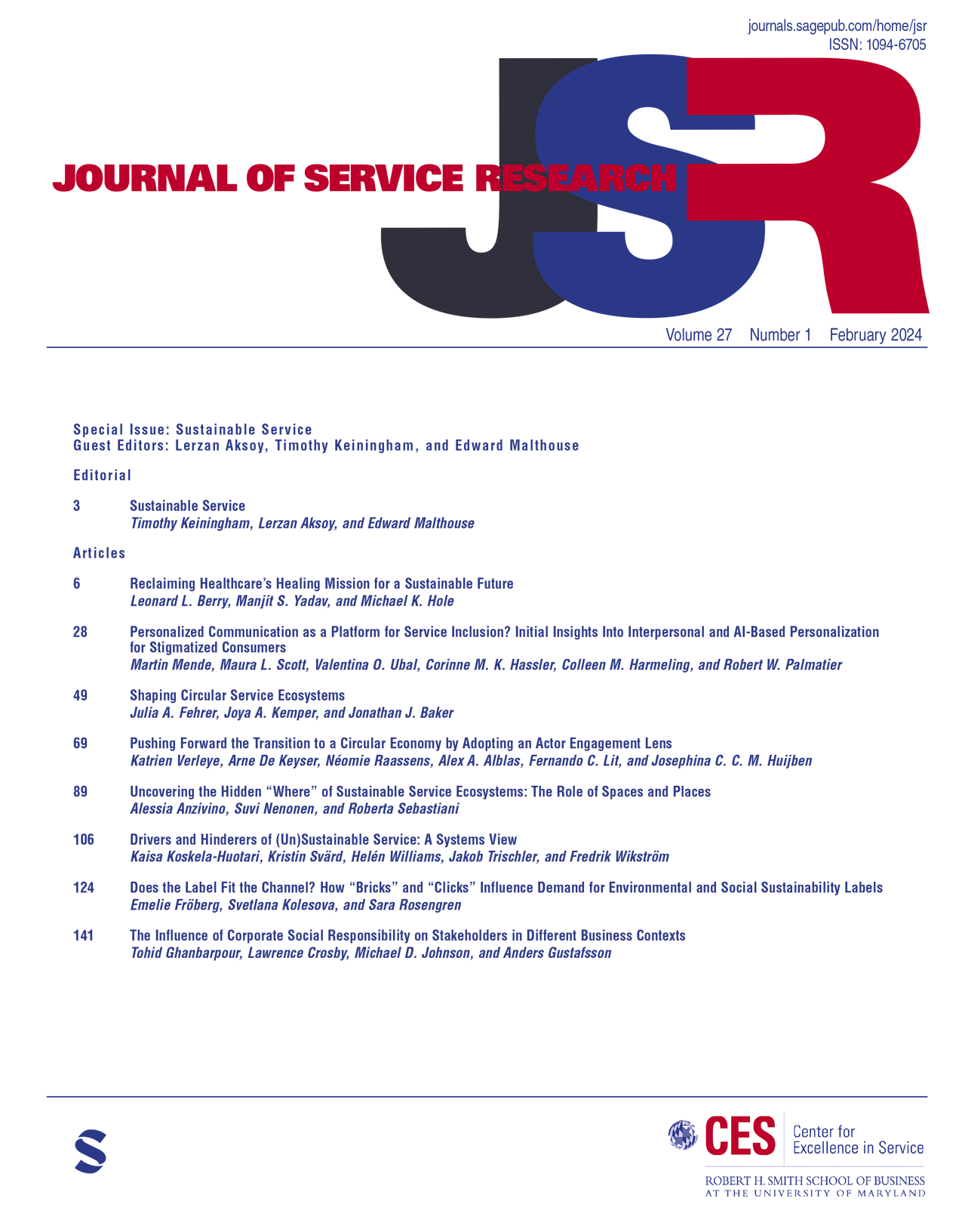Tipping, Disrupted: The Multi-Stakeholder Digital Tipped Service Journey
IF 8.6
2区 管理学
Q1 BUSINESS
引用次数: 0
Abstract
The shift from analog to digital point-of-sale systems (e.g. Square) and app-based service platforms (e.g. Uber) disrupted frontline services by creating new tipping processes that occur in an ever-expanding range of service contexts and involve new stakeholders. The increasing importance of tipping in the global economy and the uncertainty regarding tipping practices suggest the need for a comprehensive framework that accounts for evolving tipped service networks. We introduce the multi-stakeholder service journey lens to build a conceptual framework that accounts for the competing interests of customers, employees, frontline service managers, technology providers, and other stakeholders in emergent tipped services. This framework examines interactions between stakeholders at different points along the tipped service journey, while accounting for the technologies and contexts that shape stakeholder interactions and the sometimes divergent outcomes that result. Stakeholder interactions at each stage of the tipped service journey suggest theoretically rich research questions, such as “How do digital tipping technologies diffuse into and realign cultural practices?”, and important practical questions, such as “Which tip request framing and formatting choices result in the highest tips, most customer satisfaction, and optimum employee outcomes?” Our conclusion emphasizes the importance of multi-stakeholder service journey perspectives for examining digitally disrupted services. Graphical Abstract小费,被颠覆:多方利益相关者的数字小费服务之旅
从模拟到数字销售点系统(如Square)和基于应用程序的服务平台(如Uber)的转变,通过创造新的小费流程,颠覆了一线服务,这些流程出现在不断扩大的服务环境中,并涉及新的利益相关者。小费在全球经济中的重要性日益增加,小费行为的不确定性表明需要一个全面的框架来解释不断发展的小费服务网络。我们引入了多利益相关者服务旅程视角来构建一个概念性框架,该框架考虑了紧急小费服务中客户、员工、一线服务经理、技术提供商和其他利益相关者的竞争利益。该框架考察了在小费服务旅程的不同节点上利益相关者之间的相互作用,同时考虑了影响利益相关者相互作用的技术和背景,以及由此产生的有时不同的结果。在小费服务过程的每个阶段,利益相关者之间的互动都提出了理论上丰富的研究问题,例如“数字小费技术如何渗透到文化实践中并重新调整?”,以及一些重要的实际问题,比如“哪种小费要求的框架和格式选择能带来最高的小费、最高的客户满意度和最佳的员工绩效?”我们的结论强调了多方利益相关者的服务旅程视角对于研究数字化颠覆服务的重要性。图形抽象
本文章由计算机程序翻译,如有差异,请以英文原文为准。
求助全文
约1分钟内获得全文
求助全文
来源期刊

Journal of Service Research
BUSINESS-
CiteScore
20.30
自引率
6.50%
发文量
28
期刊介绍:
The Journal of Service Research (JSR) is recognized as the foremost service research journal globally. It is an indispensable resource for staying updated on the latest advancements in service research. With its accessible and applicable approach, JSR equips readers with the essential knowledge and strategies needed to navigate an increasingly service-oriented economy. Brimming with contributions from esteemed service professionals and scholars, JSR presents a wealth of articles that offer invaluable insights from academia and industry alike.
 求助内容:
求助内容: 应助结果提醒方式:
应助结果提醒方式:


